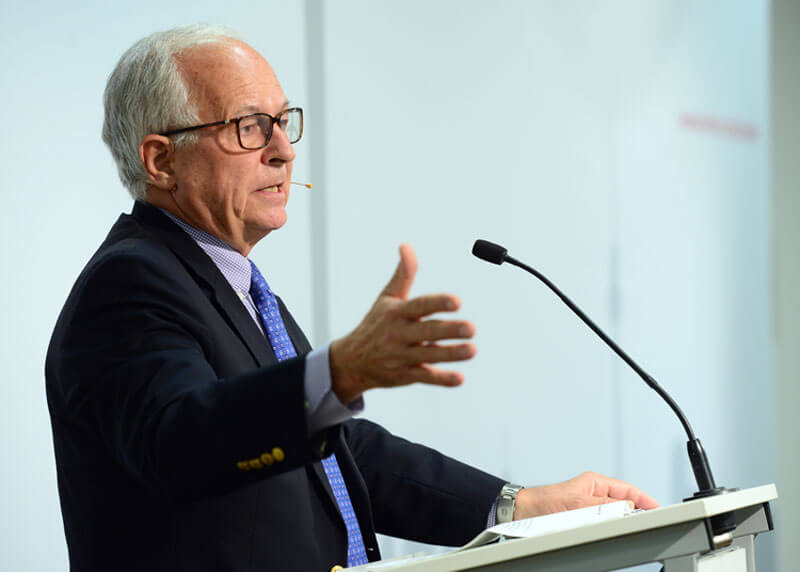
Europe's refusal to intervene is a failed strategy, says Wolfgang Ischinger.
Never before have Europeans been so acutely affected by a conflict beyond our borders, and never before have we done so little to help resolve it.
With the war in Syria and the ensuing consolidation of the extremist “Islamic State” group, terror has returned to Europe with the attacks in Paris, Brussels, Nice and Ansbach. The war has also compelled hundreds of thousands to seek refuge here, testing the cohesion of the European Union.
One reaction to the flow of refugees has been the emergence of an “axis of fear,” driven by populist and illiberal powers fueling resentments and seeking a solution in nationalism. These forces pervert the political climate and weaken the democratic consensus, endangering the future of the whole European project.
The European Union should be trying everything to end the conflict in Syria, not just as a matter of vital selfinterest, but because it is our humanitarian obligation. At stake are the credibility and basic values of Europe, and the answer to whether we still take humanity seriously as the guiding principle of our actions.
From the very beginning, E.U. member states have not supported their words with deeds. While European governments – Berlin included – were among the first to openly call for the removal of dictator Bashar alAssad, no strategic plan has been put in place to achieve this objective. Opponents of any involvement in Syria warned that this would contribute to a radicalization of the conflicting parties and a regionalization of the conflict. This suppressed any serious discussion about no-fly zones and other options to protect the Syrian population. For years, the comfortable maxim has been to encourage any action but actually intervening ourselves.
The result has been thousands dead, millions of refugees, and an acid test of the European Union. But there is no escaping the guilt and responsibility that a failure to act inevitably creates.
As in every civil war, the participants have become more radicalized as the
conflict wears on. Now there is no trace of the initially relevant and moderate opposition, which received half-hearted or no support at all from the West, and was crushed between the warring factions. That is how we drove disillusioned Syrians into the arms of groups like IS.
Should we have intervened in Syria and opposed the Russian support of the Syrian regime at an earlier stage? Even if the U.S. intervention policy has been rightly criticized, we still have to ask ourselves this question. Because with more than 400,000 people dead, who can seriously approve of our impotence?
What consequences should we draw from the global community’s inability to end the killing in Syria over the last five years? Do the most recent events open the way for a multipolar order where the powerful violate international law as they choose? What does it mean when a permanent member of the United Nations Security Council like Russia defends, or even helps, to organize bombardments aimed at civilians?
Syria gives us a preview of a time when the liberal world order could be determined not by the classical forces of order, but by those that bring chaos. Russia has used the West’s hesitation in Syria to expand its influence in the region and is in the process of demolishing what is left of the “pax americana,” with no hope for a diplomatic solution. Relations between Russia and the United States are more entrenched than ever. What does that mean for Ukraine or any future cooperation with Moscow at all? These are grim questions – for Berlin too.
The war in Syria and its consequences for Europe prove that we cannot keep out of conflicts beyond our borders. Building an imaginary wall will not resolve these problems. But are we prepared to get involved in a credible way to preserve a liberal international order? What needs to happen for Moscow to take the European Union seriously? We can no longer dodge these awkward questions.
This article was first published by Handelsblatt Global Edition on 12 October 2016.
More about the author
-
Wolfgang Ischinger, Professor Emeritus of Security Policy and Diplomatic Practice | Founding Director, Centre for International Security
